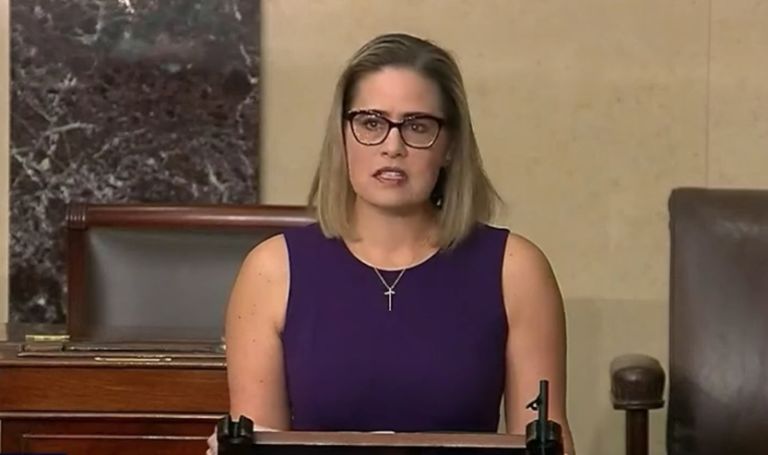Editors at National Review Online critique an immigration plan put forward by North Carolina’s Sen. Thom Tillis and Sen. Kyrsten Sinema of Arizona.
“The two most frightening words in Washington are ‘bipartisan consensus,’” P.J. O’Rourke once quipped. “Bipartisan consensus is like when my doctor and my lawyer agree with my wife that I need help.” These words are worth keeping in mind regarding last week’s statement from the Alliance for a New Immigration Consensus, “praising the bipartisan effort” of Senators Thom Tillis (R., N.C.) and Kyrsten Sinema (
D.I., Ariz.) to craft a last-minute immigration deal in the final weeks of the 117th Congress.First of all, there’s the question of why Republicans would want a deal in a lame-duck session. While the GOP cavalry did not arrive in the numbers many had hoped for last month, the party did retake the House. Congressional Republicans will be running the lower chamber in less than a month; it makes no sense to negotiate now, when they have less power and leverage, rather than later.
Then, there’s the substance of what Tillis and Sinema are talking about. Their proposal would pair a pathway to citizenship for so-called Dreamers — the more than 2 million young illegal arrivals who have, since 2012, been shielded from deportation under the Deferred Action for Childhood Arrivals (DACA) program — with beefed-up funding for border security, swifter removal of illegal aliens who don’t qualify for asylum, and a year-long extension of Title 42’s Covid-era immigration enforcement measures.
Put aside for the moment that a rational government shouldn’t need to rely on a CDC edict and the falsehood that the coronavirus is still a major public-health emergency to exclude illegal migrants from its borders.
Of course, history says that deals like Tillis-Sinema — trading some form of amnesty for the promise of more enforcement and border security — don’t work as advertised.


